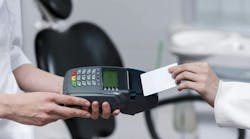4 keys to maintaining a successful recall system in your dental practice
WE'VE ALL HEARD IT, AND WE ALL KNOW IT—RECALL IS THE HEARTBEAT OF THE DENTAL PRACTICE. Yet when I bring up the subject in an office, I often hear, “But it’s so hard to maintain.” My question to them is, “What makes it so hard?”
Their replies? “We don’t know whose job it is,” “The system is hard to organize,” or, my favorite, “No one has time to work the reports.”
Many offices do not like the term “recall,” so insert whatever term you want to use—recare, hygiene, or continuing care—for this discussion. I prefer to use the term “retention.” After all, that’s the true purpose of recall. Think of recall this way—we are retaining the patients who have been through our office.
Why is recall the heartbeat of the practice? There are many reasons, however, there are four that I want to stress:
1. You ensure that you will have returning patients, hence a full and productive schedule.
2. The majority of treatment is diagnosed out of the hygiene chair, so you are feeding the restorative side of the clinical house.
3. Patients who have delayed diagnosed treatment, when brought back through the hygiene operatory, have that important time with the doctor to discuss the reason for the necessary treatment.
4. You maintain retention as you continue to bring patients in for their regular checkups. It’s easy for them to fall through the cracks when they don’t hear from you.
The way to streamline the process is to make it a consistent habit to hit the mark every time. Here are the key steps to creating your successful recall system.
1. Software—I have yet to find software that does not have a way to capture and retain your recall patients. It is important that it is set up properly and that all users are trained on the correct use of the software. Too often I see handwritten lists of patient names, with notes about calls made to those patients. This is because the user wasn’t trained, doesn’t trust, or finds the computer difficult to use. This is a waste of time and effort when there is technology that can take care of all of this in a nanosecond.
The other problem I see is people using the system incorrectly because they were taught wrong, or perhaps they were self-taught. I cannot emphasize enough the value of training.
2. New patients—As soon as a patient enters the practice as a new patient for possibly an emergency, the doctor should discuss the importance of a follow-up hygiene appointment. This is a step that is often overlooked. Again, the software can help make this a simple process.
3. Pre-appointing—Pre-appointing in hygiene makes life much easier on the entire team. It should be noted that consistent reminders help patients remember their appointments that were scheduled six months ago.
4. Follow-up—Follow-up, which is working the reports and making the calls, is the most mismanaged step in all recall systems. The most popular excuse I hear is, “No one has time.” Statistics show that it costs three times as much to find a new patient than to retain patients of record.
If you do not have the resources in your office to follow up, you might consider using a company such as Callforce, which will call your patients for you. For a nominal fee, a company will call your patients and schedule their appointments.
Keeping returning customers is truly the heartbeat of any business, and a dental practice is a business. Ideally, you want to make it as streamlined as possible, and you probably have the tools at your fingertips to easily do so. Of course, I would be remiss if I didn’t mention that providing exceptional customer service is the most important thing for patient retention. Getting your patients to come back is everyone’s responsibility. Think of recall as your way of retaining patients. The life of your practice depends on it.




